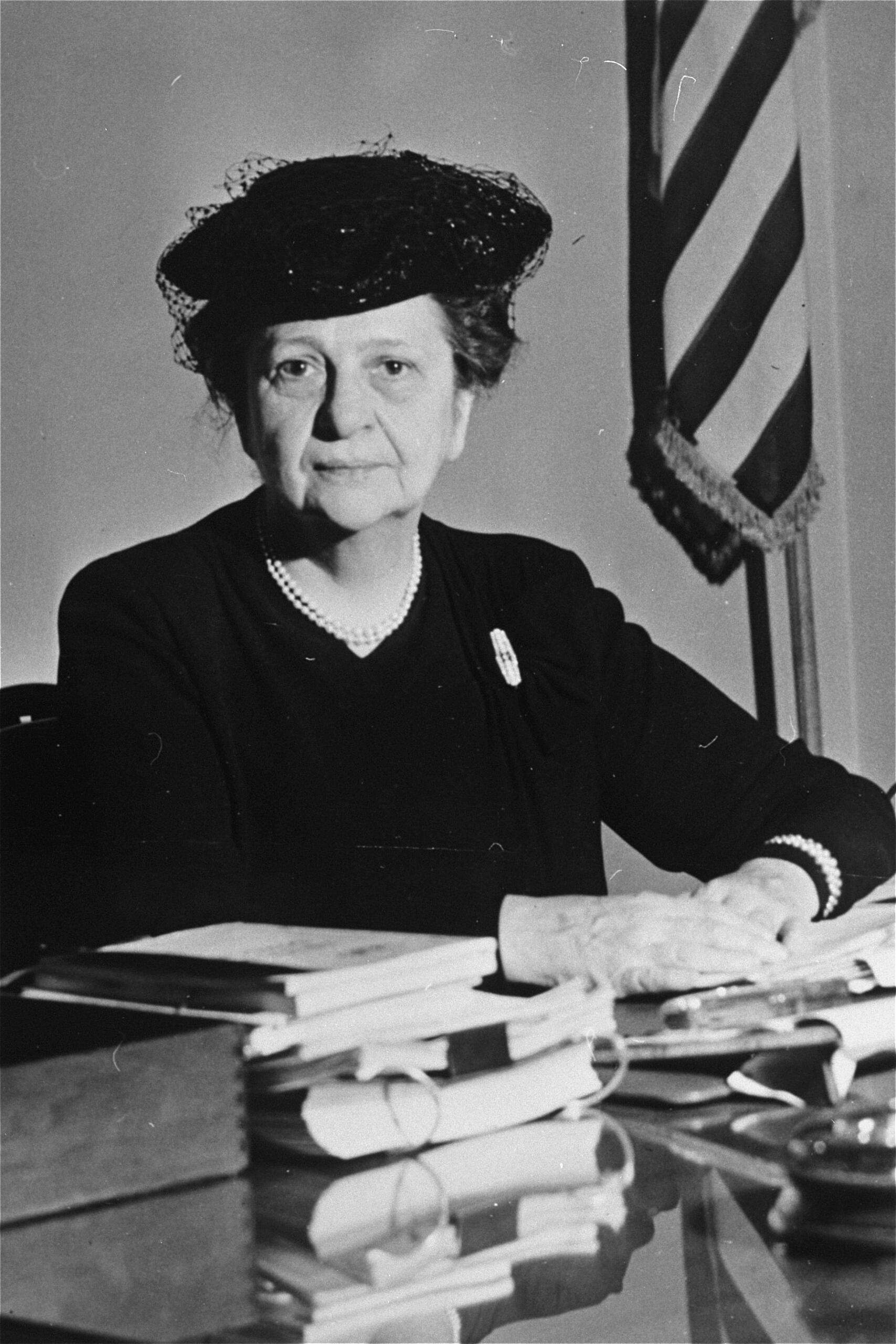

DEAR MISS PERKINS.
A Story of Frances Perkins’s Efforts to Aid Refugees from Nazi Germany
Book talk by Rebecca Brenner Graham, Ph.D.
July 9, 2025 @ 12:00 pm - 1:00 pm
| FreeIn this book talk, author Rebecca Brenner Graham, Ph.D. speaks about “DEAR MISS PERKINS. A Story of Frances Perkins’s Efforts to Aid Refugees from Nazi Germany,” which focusses on an unknown aspect of Frances Perkins’ prolific career as the first woman to serve in a presidential cabinet, the longest-serving labor secretary, and an architect of the New Deal.
Perkins’s early experiences working in Chicago’s famed Hull House, and as a firsthand witness to the horrific Triangle Shirtwaist fire, shaped her determination to advocate for immigrants and refugees. As Secretary of Labor, she wrestled with widespread antisemitism and isolationism, finding creative ways to work around quotas and restrictive immigration laws. Diligent, resilient, empathetic, yet steadfast, she persisted on behalf of the desperate when others refused to act.

Frances Perkins, age four. Courtesy Mount Holyoke College Archives and Special Collections.

Frances Perkins at her desk, 1938. United States Holocaust Memorial Museum. Courtesy National Archives and Records Administration, College Park
Perkins was the first woman to serve in a presidential cabinet, the longest-serving labor secretary, and an architect of the New Deal. Yet beyond these celebrated accomplishments, there is another dimension to Frances Perkins’s story. Without fanfare, and despite powerful opposition, Perkins helped save the lives of countless Jewish refugees fleeing Nazi Germany.
In March 1933, at the height of the Great Depression, Perkins was appointed Secretary of Labor by FDR. As Hitler rose to power, thousands of German-Jewish refugees and their loved ones reached out to the INS—then part of the Labor Department—applying for immigration to the United States, writing letters that began “Dear Miss Perkins …”

Kensington Books 2025

Rebecca Brenner Graham, Ph.D.
Dr. Rebecca Brenner Graham is a postdoctoral research associate at Brown University. Previously, she taught at the Madeira School and American University. She has a PhD in history and an MA in public history from American University, as well as a BA in history and philosophy from Mount Holyoke College. In 2023, she was awarded a Cokie Roberts Fellowship from the National Archives Foundation and a Rubenstein Center Research Fellowship from the White House Historical Association. Her writing has been published in the Washington Post, Time, Slate, the Los Angeles Review of Books, and elsewhere.
This event is part of the online series “Flight or Fight. stories of artists under repression.”


